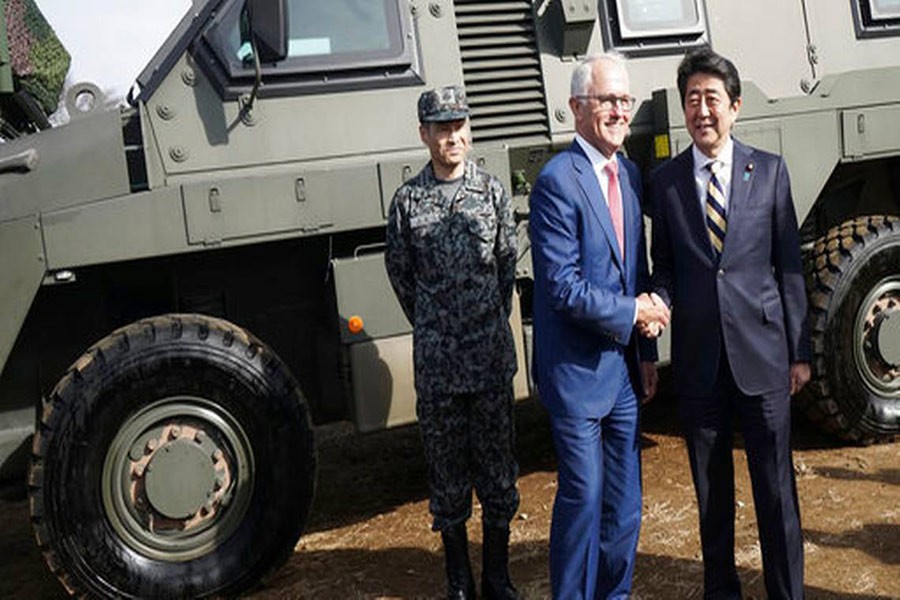Australian Prime Minister Malcolm Turnbull said Thursday he welcomed the recent dialogue between North and South Korea but marching together at the Winter Olympics won't denuclearize the Korean Peninsula.
Turnbull, visiting Japan to talk with Prime Minister Shinzo Abe about regional security, trade and other issues, cautioned against optimism.
"We have to be very clear-eyed about this," he told reporters. "History tells us a very bitter lesson about North Korea. They have a long habit of ratcheting up their militarization and then, you know, going into a lull for a while trying to persuade people that they're changing their ways, changing nothing and then ratcheting up again."
North and South Korea held rare talks in a border village this week where they agreed to form their first unified Olympic team and that their athletes would parade together during the opening ceremony of next month's Winter Olympics in South Korea.
They'll present the plan to the International Olympic Committee this weekend in Switzerland.
Turnbull said the pressure and the sanctions against North Korea over its weapons programs must be maintained.
Japan and Australia have been deepening their defense cooperation amid the tensions over North Korea's nuclear and missile development and China's expansion in the Pacific, reports AP.
Turnbull spoke while he and Abe visited a Japanese military training camp just outside Tokyo, where they viewed a PAC-3 missile interceptor and got inside a Bushmaster armored vehicle, which was developed in Australia and adopted by Japan's military in 2014.
Turnbull said the visit to the Narashino training camp was a reminder of the big threats in the region, "terrorism on the one hand, and, of course, the reckless regime in North Korea on the other."
He added that his country and Japan work for open markets and free trade, which "is underpinned by security."
The two countries are also considering a visiting forces agreement to further expand their military cooperation.
Turnbull is scheduled to attend a special session of Japan's national security council, speak to business leaders and have dinner with Abe before leaving Japan.


